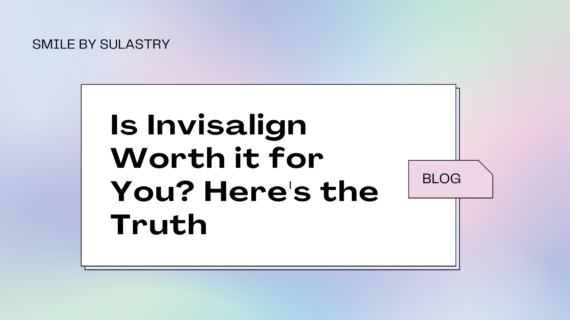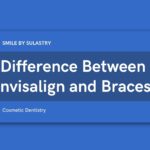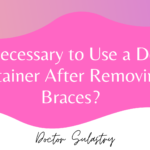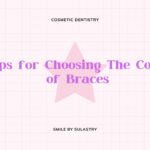Is Invisalign Worth it – If you want to fix your smile or teeth properly, the idea of wearing metal braces for three or four years seems like a bad choice.
Maybe you should think about using Invisalign. But is Invisalign the equivalent of braces? Will it fix overbites, underbites, and more as well as regular braces?
Unlike traditional braces, Invisalign is transparent and removable. It doesn’t have cables or elastic bands, so it’s a better aesthetic choice.
Also Read Difference Between Invisalign and Braces That Should You Know
Is Invisalign worth it to get ?
Your orthodontist or dentistry is the best person to teach you. They will perform a detailed dental examination and let you know if you are a good candidate for Invisalign or not. This decision will be based on the condition of your teeth and your lifestyle goals.
While Invisalign claims to offer the same efficiency as braces with better aesthetics, there are situations where braces have a clear advantage. Also, there is a cost factor involved.
In cases of malocclusion (improper bite), which is a condition in which the teeth are not aligned properly, most dentists recommend using a clear straightener (Invisalign) as this is a good option.
Invisalign show that the following patients respond well to treatment:
- Patients with small crowding teeth
- Expansion (lower and upper teeth do not fit when chewing)
- Intrusion (teeth pushed into gums)
- Cases that do not require braces and can be managed by an active or passive follower
- In the above case, both Invisalign and braces will work, although braces are cheaper.
- Small tooth gap between teeth (less than 4 mm)
- Minor tooth rotation (bent teeth)
- Orthodontic recurrence (you had braces in the past, but now your teeth are shifting back to their previous position)
Invisalign does not have a good success rate in individuals with the following conditions:
- Severe crowding of teeth
- Bad bite (open bite and deep bite) In this condition, the upper and lower teeth are not in the correct position when the jaw is closed.
- Facial bone growth problems
- Severe rotation
- Tip and torque control (a kind of tooth deformity)
- Impacted teeth
- Cases of intercuspation (poor relationship between the upper and lower teeth behind the jaw)
Therefore, you should discuss this with your dentist. Together, you can create the best plan for the management of your dental problems.
Some Other Benefits of Invisalign
While Invisalign seems like the better choice in some ways, there’s a lot more to consider here. The invisible plate (aligner) can be removed for a few hours if you have an important presentation or event or date to visit.
Removing and cleaning the Invisalign tray is also much easier. It’s also handy while you’re eating, or brushing your teeth. You can pull it out and you’re good to go. But, with braces, flossing in and around them can be painful at times.
Invisalign also moves your teeth much more slowly than traditional braces. You will feel less discomfort over time.
The fixed support brackets cause canker sores where they rub against the soft tissues of our mouth, which can be very bothersome for people who wear braces. This is not something Invisalign users need to worry about. Definitely a big plus of it.
Easy oral hygiene
Invisalign can also make it easier for you to maintain oral hygiene. Simply remove your Invisalign aligners before you eat or drink anything other than water.
Brush and thread as usual. You will then need to reattach your straightener to ensure there are no delays with your treatment.
With metal brackets and wires, it can sometimes be difficult to remove food particles and plaque between your teeth. Leaving food particles trapped in your braces can cause plaque and tartar to build up. You can increase your risk of gum disease.
Conclusion
If you’re still asking, is Invisalign worth it, the answer depends on your unique situation. Braces and Invisalign have their advantages and disadvantages. The best thing is to go to the dentistry and get an honest evaluation of your teeth and where you are.
If Invisalign is right for you and your needs, your dentistry can let you know.




